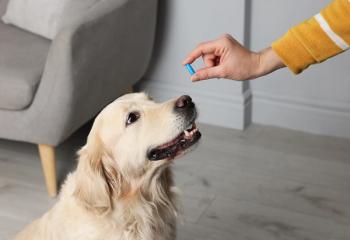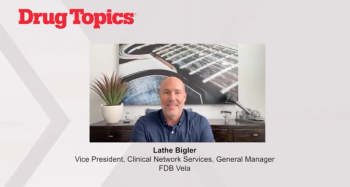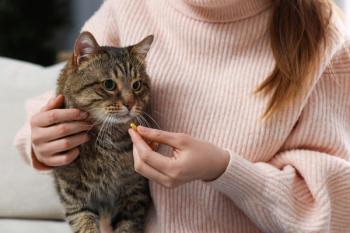
Independent Pharmacies Can Provide a Personal Touch for Pet Parents Filling Prescriptions
Independent veterinary pharmacists face competition from retail giants like Chewy and Amazon. To compete, they emphasize personalized service, compounding, and educating customers about their capabilities.
Independent pharmacists have long been competing with retail giants for filling human prescriptions. Many of these pharmacists hope that their personal touch will keep patients coming through the door. That’s especially true for veterinary pharmacy, where many veterinarians are prescribing medications for pets, and customers often seeking out the cheapest option—Chewy or Amazon or another big brand—to fill their pets medication.
Kate Boatright, VDM, a small animal veterinarian, understands why clients want to turn to Chewy and Amazon for filling prescriptions, especially for preventative medicines or prescriptions for chronic conditions that will need to be ordered again and again. “I think for a single script, it’s more likely they will go to an independent pharmacist,” she said.
Gary Koesten, BPharm, president of Vet Pharm Consulting in Boynton Beach, Florida, noted that the buying power of the large retailers creates a big challenge because they work directly with the manufacturer. “A typical independent pharmacy is not always going to be able to offer the medications either because they can’t get it, or it may be available through a wholesaler in small quantities, but it would make them charge more than what a client could get if they would buy through a mail-order outlet.”
It’s not like these bigger retailers don’t have veterinary pharmacists on staff; it’s just that you lose something in the personal touch component. That’s why it’s important for vet pharmacists to sell their pharmacy as a place that pet parents want to go to help their pets.
Thankfully, pharmacists are one of the most trusted of the health care professions, and so pet owners often feel more secure discussing medication with a pharmacist.
“At the very least, even if an independent pharmacist cannot or chooses not to bring in veterinary prescription items into their store, they can bring in some over-the-counter pet-care items, so it becomes a convenience for the human owners when they are shopping or filling a prescription for themselves,” Koesten said. “You can create loyal customers that way.”
Independent veterinary pharmacists can also supply a service by compounding, which can help provide the right dose that veterinarian is prescribing.
“That is one way they can aid those clients who want to get their pet medications filled at a pharmacy,” Koesten said.
Lauren Forsythe, PharmD, is a veterinary pharmacist and assistant professor of social and administrative pharmacy at the University of Findlay, noted the key to win business is providing excellent customer service.
“The big companies have that concept that they can ship anywhere and their prices are very competitive, but by being able to provide one-on-one customers service, and knowledgeable pharmacists, and one that veterinarians like to use, it will win business,” she said. “When I talk to veterinarians and mention Chewy, they groan. It’s not because of quality or safety concerns, but the fact that they will send 10 boxes requesting refills and then tell the client the vet’s not answering them, when the request came in the night before. It’s practices like that that vets really despise.”
Some good marketing tips for vets is to highlight their superior knowledge and educate the customers on why they will do everything they can to help their pets.
“Customers may not actually know that their pharmacist can do veterinary prescriptions,” Forsythe said. “If a pharmacist has put in a lot of effort into learning and are capable of providing good service, advertising that is important.”
Newsletter
Pharmacy practice is always changing. Stay ahead of the curve with the Drug Topics newsletter and get the latest drug information, industry trends, and patient care tips.























